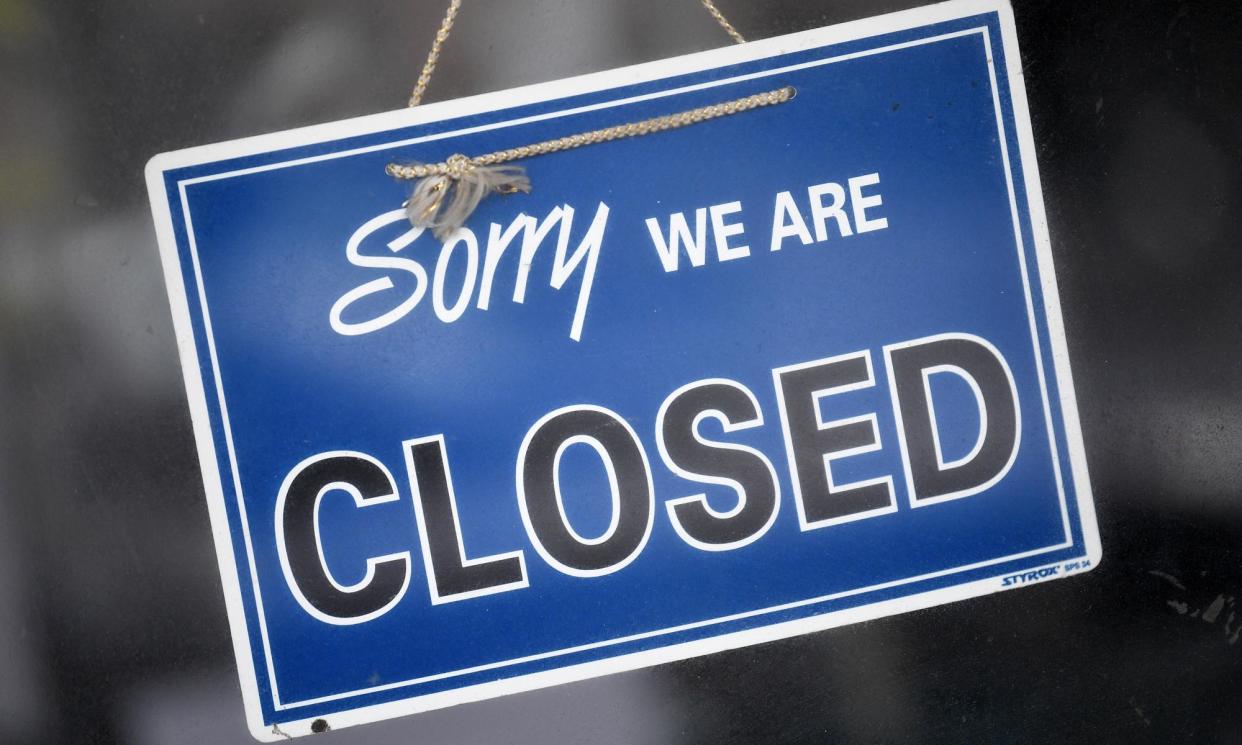Feeling the pinch: why are so many Australian businesses failing?

An insolvency tsunami has swept through Australia, putting the country on track to record decade-high numbers of collapsed businesses by the end of the financial year.
While building and food services companies are at the forefront of the surge, few sectors have been spared, representing a soft underbelly to the country’s otherwise resilient economy.
Why are so many businesses coming unstuck?
Just one glass
The hospitality industry is recording a spate of collapses as consumers cut their restaurant and cafe spend during a cost-of-living crisis.
This rubs against the support hospitality businesses received from the community in the early pandemic, in part due to programs such as state government-issued dining vouchers. There have also been 13 interest rate rises since then, accompanied by rocketing household expenses.
Suresh Manickam, chief executive of Restaurant & Catering Australia, says everybody is feeling the pinch.
“There is an element of discretionary spending for a consumer when they go out,” says Manickam.
“They might not have a bottle of wine with their meal and instead cut back to one or two glasses, or they may choose two courses instead of three.”
Official data shows that the volume of retail trade, which includes food and dining out, has fallen for the fifth quarter out of the past six.
The corporate regulator expects the total number of annual collapses will surpass 10,000 by the end of June, a level not seen since the 2013 financial year.
One caveat is that the number of registered companies has risen significantly over that period, from about 2m to more than 3.3m.
Bullwhip effect
The construction sector is recording the most collapses out of any sector, far exceeding levels recorded before and during the early pandemic years.
Tim Reardon, chief economist at the Housing Industry Association, says the industry is suffering from a “bullwhip effect”, referring to pent-up pressures on builders being passed on to subcontractors.
Many builders were caught out in the inflationary period by fast-rising material costs, which eroded anticipated profits from their fixed-price contracts.
Worker shortages and supply chain delays also led to a blowout in build times, another factor that dents profitability.
“That challenge of fixed price contracts and long build times have been the underlying cause of the problem, but we are now through that cycle,” Reardon says.
Reardon expects more construction businesses will wind up ahead of 30 June, before insolvency numbers stabilise.
Late payments
The average time taken by a business to pay back dues has been rising steadily, according to analysis by credit reporting agency Equifax, which is an indicator of financial stress.
When it comes to late payments, the construction industry is outpacing the broader market, paying their dues on average 10.2 days after they are supposed to.
Scott Mason, general manager of commercial and property services at Equifax, says financial stress in business can tip over into personal financial strain.
“These business owners are having to make some extremely difficult choices around whether to prioritise paying their business or personal expenses and, as a result, their mortgage repayments are starting to lapse,” Mason says.
Sole traders and small business owners in the construction and hospitality sectors are significantly more likely to be in mortgage arrears than consumers with no commercial commitments, according to Equifax.

 Yahoo News
Yahoo News 
